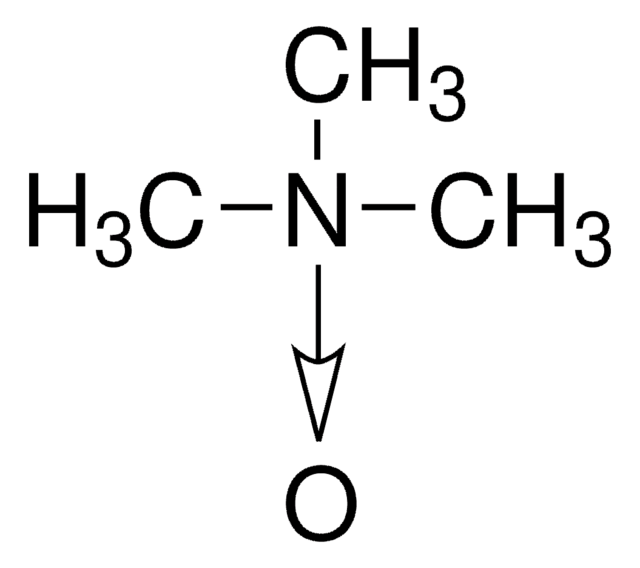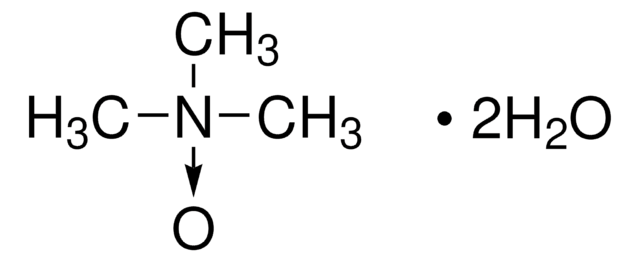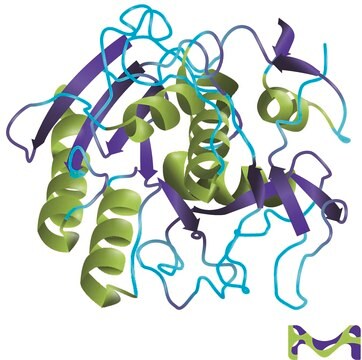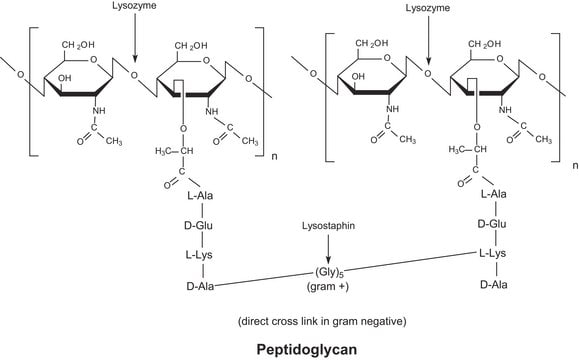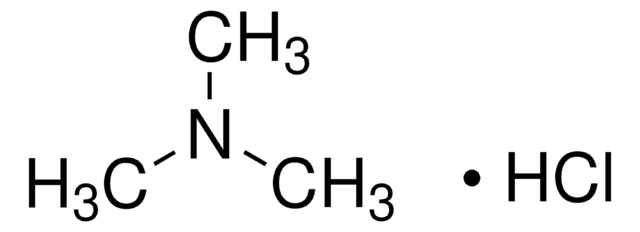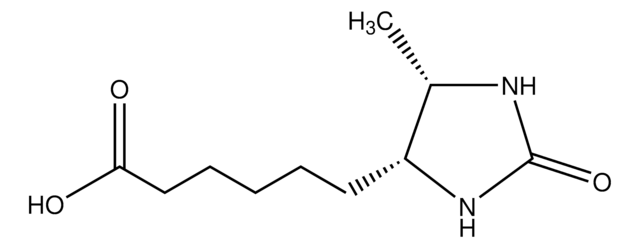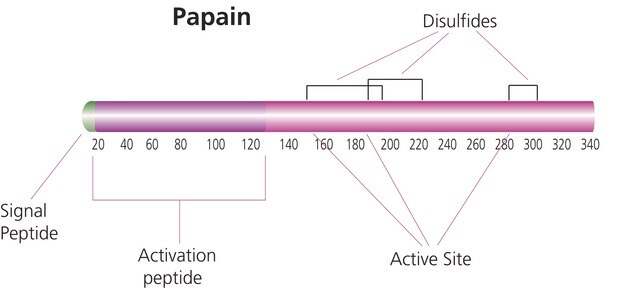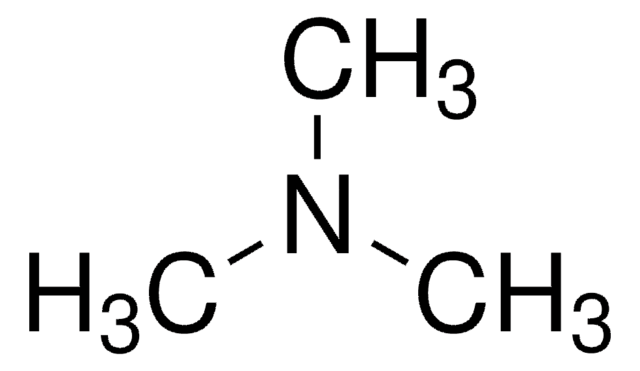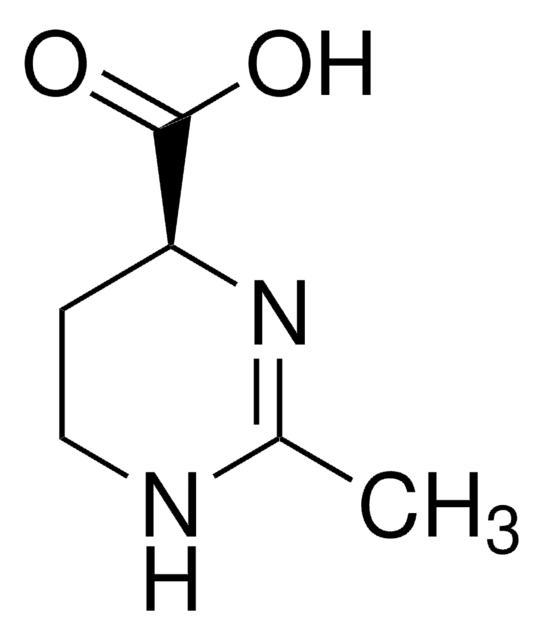T0514
Trimethylamine N-oxide dihydrate
98%
Synonym(s):
TMANO
Sign Into View Organizational & Contract Pricing
All Photos(1)
About This Item
Linear Formula:
(CH3)3NO · 2H2O
CAS Number:
Molecular Weight:
111.14
Beilstein:
3612927
EC Number:
MDL number:
UNSPSC Code:
12352116
PubChem Substance ID:
Recommended Products
Quality Level
Assay
98%
form
powder
reaction suitability
reagent type: oxidant
mp
95-99 °C (lit.)
SMILES string
O.O.C[N+](C)(C)[O-]
InChI
1S/C3H9NO.2H2O/c1-4(2,3)5;;/h1-3H3;2*1H2
InChI key
PGFPZGKEDZGJQZ-UHFFFAOYSA-N
Looking for similar products? Visit Product Comparison Guide
Application
Reactant for:
- C-H bond cleavage
- Oxidation reactions (oxidant)
- Decarbonylating agent for solvent-free reactions
Trimethylamine N-oxide dihydrate can be used as:
- A decarbonylating agent in many chemical reactions.
- An oxidizing agent for organoboranes.
- A standard in the determination of amines in air samples using non-suppressed ion chromatography.
Signal Word
Warning
Hazard Statements
Precautionary Statements
Hazard Classifications
Eye Irrit. 2 - Skin Irrit. 2
Storage Class Code
11 - Combustible Solids
WGK
WGK 2
Flash Point(F)
Not applicable
Flash Point(C)
Not applicable
Personal Protective Equipment
dust mask type N95 (US), Eyeshields, Gloves
Choose from one of the most recent versions:
Already Own This Product?
Find documentation for the products that you have recently purchased in the Document Library.
Customers Also Viewed
Electrophilic attack on diphosphazane-bridged derivatives of diruthenium nonacarbonyl by halogens. Crystal structure of [Ru2 ({′A}-I) I (CO)3 {{′A}-(PriO)2 PN (Et)P (OPri)2}2]
John S, et al.
J. Chem. Soc., Dalton Trans., 10, 2761-2768 (1991)
Oxidation of organoboranes with trimethylamine N-oxide dihydrate
Kabalka GW
Journal of Organometallic Chemistry, 125(2), 273-280 (1977)
Hui Wei et al.
Frontiers in microbiology, 9, 3276-3276 (2019-01-29)
Yarrowia lipolytica, known to accumulate lipids intracellularly, lacks the cellulolytic enzymes needed to break down solid biomass directly. This study aimed to evaluate the potential metabolic burden of expressing core cellulolytic enzymes in an engineered high lipid-accumulating strain of Y.
Our team of scientists has experience in all areas of research including Life Science, Material Science, Chemical Synthesis, Chromatography, Analytical and many others.
Contact Technical Service